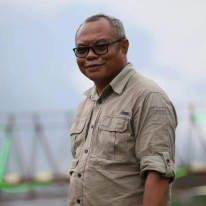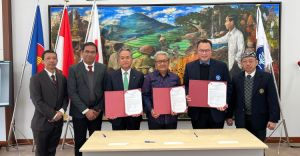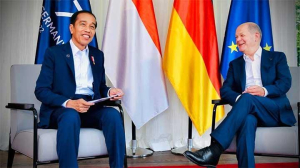Import quota removal unlikely ensures the welfare of farmers: Expert
Professor at the Bogor Agricultural University (IPB), Dwi Andreas Santosa, says the government's policy for the elimination of import quotas will unlikely improve the welfare of domestic farmers, but trigger an extensive flow of cheap imported products that could destroy the selling price of local agricultural products.
"If the quota is abolished, farmers will still not be prosperous. In fact, it could get worse because there are no more limits on the amount of imported goods that enter," Andreas said in an interview with Indonesia Business Post on Friday, April 11, 2025.
He cited that basically import quota is an instrument to protect the production capacity of local farmers. For example, if domestic farmers are able to produce up to 12 million tons of corn from the total national requirement of 14 million tons, then the import quota is set at 2 million tons.
"The quota is not just a figure, but a form of protection. If it is opened freely, importers can import as much as possible, and it will definitely flood the market," he said.
He added that when imports come in on a large scale and without restrictions, local food products will find it difficult to compete because the price of imported products is much lower.
"This automatically depresses domestic prices and makes farmers' incomes decrease even further," Andreas said.
Cheap imported products
According to Andreas, the cheap price of imported products is caused by various structural factors in the country of origin. One of them is the practice of dumping, which is selling goods abroad at a price lower than their domestic market price.
"Exporting countries are often in a surplus condition. To get goods out of their country, prices are suppressed in such a way," he cited.
In addition, countries such as the United States consistently provide massive subsidies for their agricultural sector.
"Their agricultural and food subsidies can reach Rp1,200 trillion (US$75 billion) per year. Even their exports are still subsidized," Andreas said.
The phenomenon of high profits from import activities also opens up opportunities for quota abuse. According to Andreas, import quotas are not only a policy instrument, but have also become commodities fought over by various interests.
“Profits from imports are incredibly large. For example, garlic enters the port at a price of only around Rp22,500 (US$1.4) per kilogram, but is sold in the market at a price of Rp45,000 to Rp50,000 (US$3.1) So the margin is very wide,” he said.
He said further that it is therefore not surprising that import quotas are often traded.
“That is an open secret. Quotas are used as a trading tool, and played by certain parties seeking profit,” he said.
He even mentioned that sudden changes in quota distribution could cause chaos in the market, especially if old players are kicked out and replaced by new players.
Tariff alternatives
As an alternative to the quota policy, Andreas proposed that the government start implementing higher import tariffs. Currently, Indonesia’s import tariffs only range from 0 percent, 5 percent, to 10 percent, which is considered too low to protect domestic products.
“Some important commodities even have import tariffs of 0 percent. This is clearly not enough to protect our farmers,” he said, while adding that higher tariffs could be a source of state revenue as well as an obstacle to cheap imports.
Andreas, however, he did not turn a blind eye to the risks of this policy.
"It is indeed risky. Other countries could retaliate by raising tariffs, or Indonesia could be reported to the WTO. But a country like India can be brave, why can't we?" he said.
In comparison, India imposes a 45 percent tariff on palm oil imports from Indonesia, to protect its soybean and sunflower farmers who produce vegetable oil. The country also applies a 20 percent tariff on wheat imports, as a form of support for its local farmers.
"India is brave enough to take a stand to protect its farmers. It is time for Indonesia to also take firm measures," Andreas concluded.
Tag
Already have an account? Sign In
-
Start reading
Freemium
-
Monthly Subscription
30% OFF$26.03
$37.19/MonthCancel anytime
This offer is open to all new subscribers!
Subscribe now -
Yearly Subscription
33% OFF$228.13
$340.5/YearCancel anytime
This offer is open to all new subscribers!
Subscribe now






